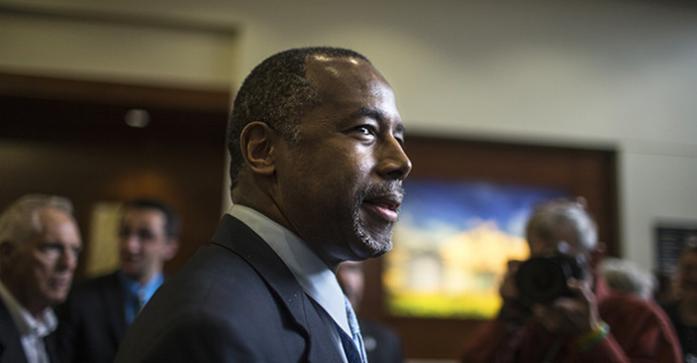Marcus Brown
[email protected]
On Sunday, Republican presidential candidate Ben Carson graced us with yet another drastic comparison when casting light on his ideological standpoint, this time comparing the issue of abortion with slavery. These Carson-isms are almost comedic in the superfluous scope of the claims made such as the connection drawn between the Holocaust and gun-control laws made earlier this month: “the likelihood of Hitler being able to accomplish his goals would have been greatly diminished if the people had been armed.”
However humorous Carson’s histrionic references to history appear to be on the surface, there lays a danger in using rhetoric to misconstrue issues of the past and present. This is especially true, as Carson has just unseated candidate Donald Trump at the No. 1 position for the first time in a CBS/New York Times national poll of Republican primary voters.
Carson’s statement made on NBC’s Meet the Press drew a rather forced comparison which he would attempt to justify by citing how “slave owners thought they had the right to do whatever they wanted to that slave” likening that rationale to that employed by a woman when deciding whether to terminate a pregnancy. Regardless of one’s stance on the issue of abortion, it should be fairly evident that the similarities that can be drawn between that and slavery are minimal at best. We are all entitled to our opinions on controversial topics, but pinning an issue to a separate, incongruent issue is no way to bolster the argument in favor of one’s opinion.
A rhetorical dissection of Carson’s irreverent statements would show that the subliminal effect runs much deeper than the cursory interpretation. By linking some of greatest atrocities to issues plaguing modern-day society, Carson is forcing a connection between the two so that the mind associates a particular viewpoint with the death and abuse of millions of people. The notion that those who do not know history are doomed to repeat it is valid, but superimposing unrelated historical events over an issue does not bring with it the same validity. Furthermore, the connotations present within these unsupported hypotheticals carry further than the supposed support it is intended to offer up towards the claim.
Saying abortion is like slavery does not make it true, nor should it force people to view abortion through the same lens as which they would view slavery. If Carson’s intention is to evoke the memory of the past, that can be done in a discussion specifically pertaining to that issue, but dredging up horrendous past events without sufficient context only serves to belittle the significance of the event and the present context in which it has been introduced. One cannot simply reach for an atrocity every time they wish to provide evidence for a claim. There is a time and place for relevant historical analogies, and Ben Carson appears incapable of finding it.



